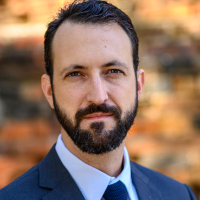Harvey Misdemeanor Lawyer, Louisiana
Sponsored Law Firm
-
 x
x

Click For More Info:
-
Babcock Trial Lawyers
10101 Siegen Ln #3-C Baton Rouge, LA 70810» view mapCriminal Defense We Want Your Injury Claim PAID NOW!
At Babcock Trial Lawyers, we work for our clients, maintaining our reputation of excellence as criminal defense & personal injury lawyers in Baton Rouge.
225-500-5000
Not enough matches for Harvey Misdemeanor lawyer.
Below are all Harvey Criminal lawyers.
J. Reed Poole
✓ VERIFIEDJ. Reed Poole, Jr. is an attorney based in the New Orleans Office of Irpino, Avin & Hawkins. He is admitted to practice law is the States of Louisiana... (more)
Nicholas Lindner
✓ VERIFIEDI am a New Orleans attorney fighting hard to protect my clients' rights, property, and liberty through experience, skill, and knowledge of the Louisia... (more)
William Brock Most
✓ VERIFIEDThe Law Office of William Most focuses on addressing civil rights and environmental issues, but has also handled matters involving land use, disabilit... (more)
Jeffery P. Brothers
Travis J. Causey
Leah A. Taschek
FREE CONSULTATION
CONTACTFREE CONSULTATION
CONTACTRolando Padilla
Davidson Stockton Ehle
FREE CONSULTATION
CONTACT Stephen Babcock Baton Rouge, LA
Stephen Babcock Baton Rouge, LA Practice AreasExpertise
Practice AreasExpertise



